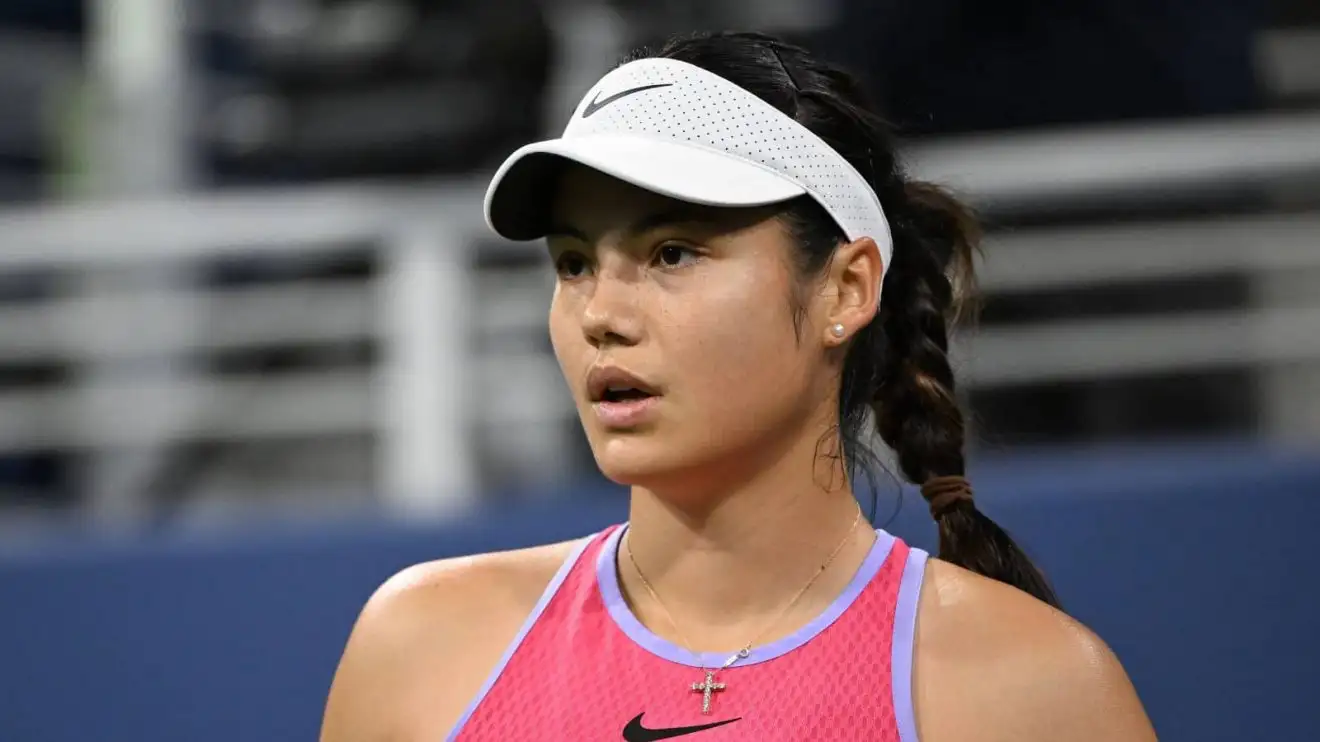
Emma Raducanu, Britain’s tennis darling and 2021 US Open champion, has encountered a significant hurdle in her meteoric career. A lucrative sponsorship deal, reportedly worth £3 million annually, has been abruptly terminated, dealing a blow to the 22-year-old’s off-court empire. The decision, which has sent ripples through the sports marketing world, stems from a breakdown in negotiations with a prominent global brand, with insiders pointing to disagreements over financial expectations as the root cause. “Emma’s team was asking for a figure that the brand felt was disproportionate, given her recent performance,” a source close to the talks revealed, shedding light on the delicate balance between an athlete’s star power and their on-court results.
Raducanu’s rise to fame was nothing short of a fairy tale. At 18, she stunned the tennis world by becoming the first qualifier to win a Grand Slam, claiming the 2021 US Open title without dropping a set. Her victory catapulted her into the spotlight, transforming her into a global sensation and a magnet for blue-chip sponsors. Brands like Dior, Tiffany & Co., Porsche, HSBC, and Vodafone lined up to partner with the poised, multilingual Londoner, whose Romanian-Chinese heritage and relatable charm broadened her appeal. At her peak, endorsement deals were estimated to generate over £10 million annually, making her one of Britain’s highest-earning athletes. Yet, the loss of this £3 million-a-year contract highlights the volatility of such partnerships, especially for a young star navigating the pressures of fame.
The past few years have been challenging for Raducanu. Injuries, including wrist and ankle surgeries in 2023, sidelined her for months, disrupting her momentum and causing her ranking to slip outside the top 50. Despite a promising 2024, with a fourth-round appearance at Wimbledon and a gritty quarterfinal run in Stuttgart, consistency has eluded her. “It’s been tough, but I’m working hard to get back to where I know I can be,” Raducanu said earlier this year, reflecting on her recovery journey. Her resilience has won her fans, but for sponsors, results matter. The unnamed brand, which had been a key partner, reportedly grew wary of investing heavily in an athlete whose form has yet to match her early brilliance.
The fallout raises broader questions about the expectations placed on young athletes. Raducanu’s camp, confident in her long-term potential, argued for a deal that reflected her marketability. “She’s still a massive draw—her story, her style, her global reach are unique,” a sports marketing analyst noted, speaking anonymously. However, brands often tie contracts to performance metrics, and Raducanu’s injury-plagued seasons may have tipped the scales. The decision to part ways underscores the high-stakes nature of sponsorships, where sentiment rarely trumps business logic.
For Raducanu, the financial hit is cushioned by her remaining endorsements, which continue to provide stability. Yet, the setback stings, both professionally and personally. “I’m here to play tennis, not to chase deals,” she declared in a recent interview, signaling her intent to prioritize her game over off-court distractions. Her team has remained silent on the matter, likely aiming to refocus attention on her upcoming tournaments, including the 2025 Australian Open, where she hopes to make a statement.
The narrative around Raducanu is one of potential and perseverance. At 22, she’s still in the early chapters of a career that could yet rival the greats. Her US Open triumph proved her talent, and her poise under pressure—whether facing a 120-mph serve or a boardroom negotiation—suggests a strength that will carry her far. The sponsorship landscape is fickle, but Raducanu’s story is far from over. As she laces up her trainers and steps back onto the court, the tennis world watches, eager to see if she can reclaim her place among the elite.
Leave a Reply